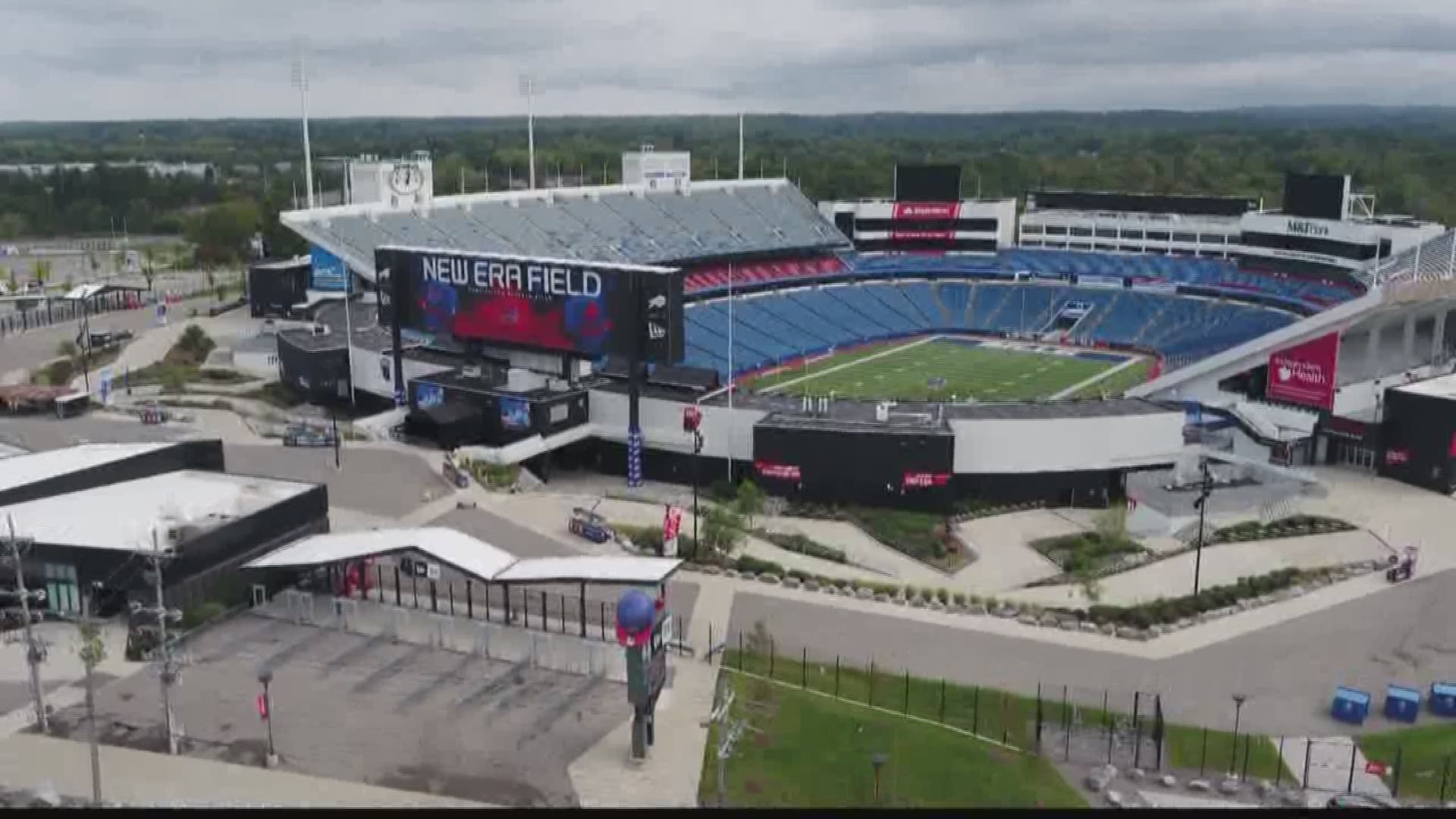TOWN OF ORCHARD PARK, N.Y. — When Joe Danno, 39 of Rochester, flew his drone over a parking lot near New Era Field in early September during the U2 concert, he thought he was in full compliance with the law.
"I didn't think I did anything wrong," he said, noting that he followed all the rules from the Federal Aviation Administration.
Town of Orchard Park Police ticketed him and seized his drone.
"Our officers responded, took him into custody, seized the drone under our local law," explained Chief Mark Pacholec with the Orchard Park Police Department.
It turns out the Town of Orchard Park's local law says you cannot operate a drone within three miles of New Era Field six hours before up until six hours after any public event.
"Our concern was, well what if (a drone) falls on someone," Chief Pacholec said.
Danno now faces a $250 fine and up to 15 days in jail.
The Town says it consulted with the Buffalo Bills and the NFL when drafting the law, even though a 2 On Your Side Investigation found no other NFL city has such a restriction. An NFL spokesperson refused to comment for this story.
The Bills organization says it's all about protecting the public. Last year, there were at least three drone incidents near the stadium. In one instance, a drone crashed into the upper deck after a game. The chief was thankful the crowd had already left.
"Panic would cause hundreds of people potentially to get injured or potentially killed," Chief Pacholec said.
Jonathan Rupprecht, a flight instructor, licensed pilot and drone law attorney, told 2 On Your Side he understands the motivation.
"The states, towns and counties feel obligated to protect their citizens by creating these laws," Rupprecht said.
Despite that, his concern is that the local law may be illegal.
"Would a court find that this local law we have here is valid, is legal," 2 On Your Side's Michael Wooten asked Enrico Schaefer, another attorney who specialized in drone law. "No, it would not," he responded.
"From a Constitutional standpoint, this is illegal," Rupprecht said, explaining that the document clearly states that federal law supersedes state or local law.
Title 49 of the U.S. Code, Section 40103, says, "The United States Government has exclusive sovereignty of airspace of the United States."
"I think that ends the discussion right there," Rupprecht said.
Schaefer added that court precedent is also in favor of the FAA having "exclusive prerogative" when it comes to regulating airspace.
He pointed to a recent federal court ruling, Singer v. Newton, Massachusetts, in which the judge found federal law preempted the city's local drone law.
The FAA has said local drone laws can hurt the agency's efforts to keep the skies safe.
In a fact sheet provided to 2 On Your Side, the FAA says, "A navigable airspace free from inconsistent state and local restrictions is essential to the maintenance of a safe and sound air transportation system."
Orchard Park's local law also says you cannot operate a drone within one mile of any outdoor event with 200 or more people. That would include parades, festivals, even large family reunions.
Critics say, in practical terms, that could be seen as a complete ban, because no drone operator would be able to actually survey a mile in every direction to make sure the flight was compliant with the local law.
2 On Your Side reached out to more than a dozen aviation attorneys around the country to try to find someone who would fully defend the legality of Orchard Park's law; we couldn't find anyone.
Despite that, Orchard Park's Town Attorney John Bailey stood by the law.
"Our ordinance in no way supplants any higher authority but supplements the same," Bailey said.
Council Member Mike Sherry told 2 On Your Side he now wants the Town's legal department to investigate this issue to make sure the drone law is in full compliance with federal law.
2 On Your Side will keep you updated on any developments.

